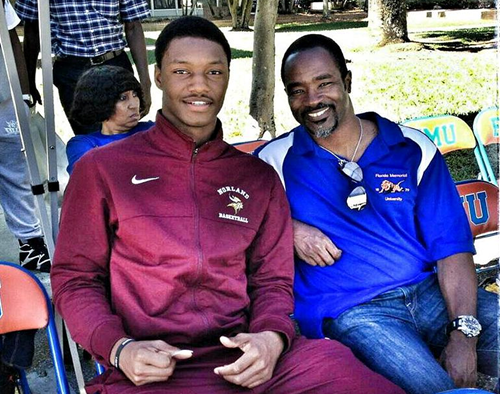The police pulled a young Black man over in a traffic stop; two cruisers parked behind him on a summer afternoon. The flashiest accessories on the young brother's kelly green Toyota Camry were slightly tinted windows. He was slim from what I could tell. Low-cut hair. Oily across the forehead, cheeks and bridge of his nose. He looked like Trevoris, my Big Brothers and Big Sisters mentee. He couldn't have been a day over 20. As I pulled up beside the three parked cars, waiting for the traffic light to turn green, our eyes met. He kept squinting into his rear-view mirror and shaking his head. His expression said: I didn't even do anything!
At that moment I mentally listed every reason I was ever pulled over for - busted taillights, out-of-date license tag, illegal window tint, fit some "description" of a suspect - and I begin to think of why this young brother may have been pulled over. I looked back at the police officers, all white men. Their reasons for the traffic stop could be anything. Justified or not something inside told me to stick around.
My initial thinking was that the young brother was safe because the stop occurred in broad daylight. But then I remembered the case of a panicked Walter Scott being shot repeatedly in the back as he ran away from a North Charleston, S.C., police officer. I tried to look forward and mind my own business, but something made me turn down my radio and look at the young brother once more. He was rocking back and forth, ever so slightly, gripping the steering wheel. Our eyes met. Please. Just don't leave, his eyes begged me.
There are some actions that feel unavoidable. When the light turned green, I decided to do something I had always thought about doing when I saw a Black man pulled to the side of the road in front of a police car. I pulled over. I turned into the parking lot across the street and found myself sitting on the hood of my car with cell phone in hand. I aimed the phone and started recording.
To this very day, when I recall the expression on that kid's face when he saw me makes my chest swell with pride. I was somebody's lifeline. This stays with me because, as I said, he resembled my mentee, Trevoris. I wondered if this young man was going through the challenges Trevoris, or my own 19-year-old son had already encountered with the police.
One of the officers from the second car, a muscular man wearing shades and a crew cut, turned to me. I made out his words between the passing cars: "Can I help you?" I tried to tell him I was meeting someone. I wasn't sure he heard what I said. A break in traffic came. He pointed down the road with his thumb. "Meet someplace else." I shrugged, pretending not to understand, but my feet began to sweat in my socks. The officer inched closer to the edge of the corner. "You hear me?" he said.
I looked at the kid, who was listening to our exchange. He looked back at me and his eyes sad, "Don't leave".
In addition to the officer telling me I needed to move on I also needed to desperately use the restroom. I walked around round the back of a bank to quickly find a bush. I wondered whether the cop would be meeting me at my car when I returned. I thought what more could I, a concerned unarmed professor (with his pants down) do? All types of scenarios ran through my mind. After I'd run out of stalling tactics, I slowly made my way around the building to the car. I was relieved to find that the boy's car was gone. I got in my car and drove off quickly. There are some actions that feel unavoidable. Perhaps going beyond to help our young brothers feel safe during a traffic stop is one of them.
Dr. William Hobbs is an author and professor at Florida Memorial University.
This article was shared in partnership with BMe Community's #BlackMenLove to remind readers of who, what, and how deeply BlackMenLove during this final weekend of Black Family Month. BMe is a growing network of all races and genders committed to building better communities across the U.S. BMe is supported by the Knight Foundation, Open Society Institute, CBMA and the Heinz Endowments. Share this letter and read more at www.BMeCommunity.org. #BlackMenLove #ReachWithUs email: BlackMenLove@BMeCommunity.org.

